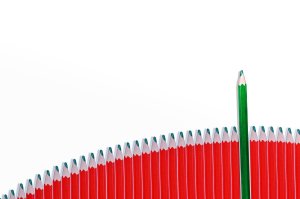What makes home sewists start to make their own clothes? And how does this relate to their imaginative and creative style of thinking? Lauren Cox stitches together the results of her research into the motivational patterns of sewists.
Continue readingCategory Archives: Current Research
Calling all performers and visual artists! How does your environment affect how you think?
Featured
Do you paint, dance or act? Perhaps you’re a budding novelist or poet? Maybe you write concertos in your spare time?
We’re looking for artists of all varieties to participate in a survey exploring how a person’s response to their environment affects their thinking style.
Continue readingPictures in the mind – are they as creative as we imagine?
What goes on when we see images in our mind? And is the strength and vividness of these images related to our ability to think creativity? Kathryn Friedlander talks us through the new findings from her recent journal article and argues that it all might depend on what kind of imagery we tend to conjure up.
Continue readingWhat makes creatives stand out from the crowd?

We’re looking for interesting and creative people to take part in our current survey exploring how personality and attitudes relate to creative potential and wellbeing.
The survey is being run by our fabulous MSc student Kathleen, here at the University of Buckingham’s CREATE hub.
Intrigued? Just click here to find our more. The survey will take you about 15-20mins to complete and it’s totally anonymous.
Full survey link: https://buckingham.onlinesurveys.ac.uk/personality-creative-potential-and-wellbeing-survey
Image credits:
- Image by khamkhor from Pixabay
- Image from https://images.pexels.com/photos/17679/pexels-photo.jpg?auto=compress&cs=tinysrgb&h=350
Calling All Sewists!

Do you sew garments at home for yourself or others? We’re currently running a survey looking at the reasons people sew garments, together with some other aspects of personality which may be relevant. This is a really interesting leisure activity, but it’s heavily under-researched, so the findings are going to be fascinating.
The survey should only take about 20 minutes to complete, and it’s totally anonymous. Please do consider taking part, by clicking the link here to find out more!
Image credits:
Creativity and Leisure in COVID-19 – an update
We recently published our findings about creative pursuits under lockdown in a Frontiers Special Issue on ‘Creativity and Innovation in Times of Crisis (COVID-19)’. Here’s the take-away summary of what we found.
Continue readingCracking Psychology: Understanding the appeal of cryptic crosswords #3 – Anagrams
It’s a common experience – you have a blank grid in front of you, 1A isn’t helping, and there’s no obvious way to get going. Maybe you, too, scan the list of clues hoping for an anagram clue or two? In the third part of our ‘explainer’ series, Kathryn Friedlander takes a look at the psychology behind this popular clue form.
Continue readingCracking Psychology: Understanding the appeal of cryptic crosswords #2 – Rebus-type clues (‘Say what you see’)
In this second part of a series unpacking the psychology behind cryptic crossword solving, Kathryn Friedlander explores the connection between cryptic clues and the ‘rebus’ or ‘word-picture’ puzzle form.
Continue readingCracking Psychology: Understanding the appeal of cryptic crosswords #1 – Puns and misdirection
Nearly all of us enjoy a good joke now and again, but those who do cryptic crosswords seem particularly attracted to verbal humour. In the first of a series unpacking the psychology behind cryptic crossword solving, Kathryn Friedlander explores the many links between puns, verbal ambiguity, misdirection and the solving of cryptic crossword clues.
Continue readingThinking flexibly is key to cryptic crossword solving
When it comes to thinking about cryptic crossword solvers, what kind of image springs to mind? Maybe Chief Inspector Morse, a vicar, or a bowler-hatted Civil Servant? But would you be right…? Kathryn Friedlander shares new research lifting the lid on the mind of the cryptic solver – and finds that they are an academically able group, tending towards science, with fantastically flexible problem-solving abilities.
Continue reading